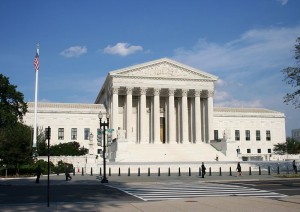The Illinois and Massachusetts laws have been used to arrest people who attempt to record on-duty police officers and other public officials. In one of the more notorious cases, Chicago resident Tiawanda Moore was arrested in 2010 when she attempted to use her cell phone to record officers in a Chicago police station.
Moore had come to the station to report an alleged sexual assault by a Chicago cop, and says she became frustrated when internal affairs officers allegedly bullied her and attempted to talk her out of filing the report. Moore was eventually acquitted.
The lawsuit was filed by the American Civil Liberties Union, which is planning a police accountability project in Chicago that will involve recording police while they’re on duty. The organization wanted to be sure its employees and volunteers wouldn’t be charged with felonies.
The 7th Circuit Court found a specific First Amendment right to record police officers. It’s the second federal appeals court to strike down a conviction for recording police. In August 2011, the U.S. Court of Appeals for the First Circuit ruled that a man wrongly arrested for recording cops could sue the arresting officers for violating his First Amendment rights.
That decision also found a broad First Amendment right to record on-duty government officials in public: “Gathering information about government officials in a form that can readily be disseminated to others serves a cardinal First Amendment interest in protecting and promoting ‘the free discussion of governmental affairs.'”
MORE: Supreme Court Inaction Boosts Right To Record Police Officers.
